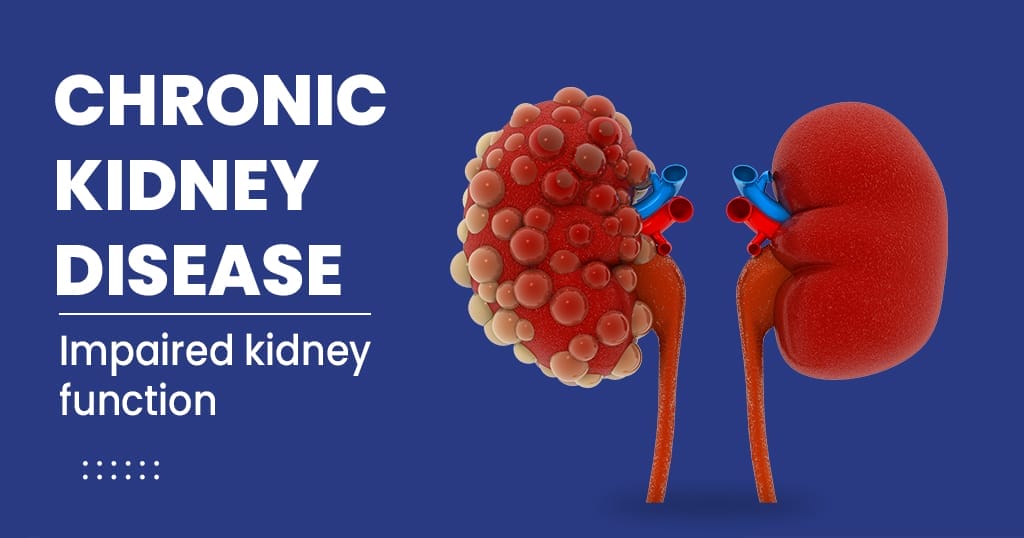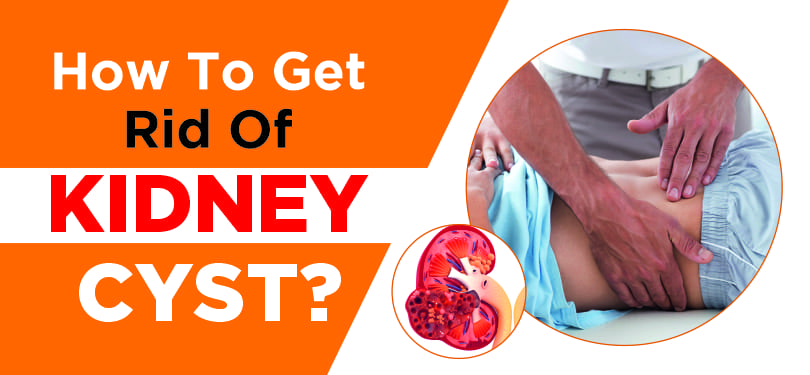Polycystic kidney disease is a genetic kidney problem that causes multiple cysts to grow in kidneys and some other organs in the body. The cysts are fluid-containing sacs that grow large over a period and damage kidney tissue. This cystic kidney problem may turn fatal by advancing to kidney failure as cysts cause severe damage to kidneys due to which they become incapable of doing their natural functions. You can take Ayurvedic kidney treatment that can help fight kidney cysts naturally.
When cysts grow large, they also enlarge kidney size and make them relatively larger.
Types of Polycystic kidney disease
Commonly, PKD is categorized into two parts that are;
- Autosomal dominant polycystic kidney disease (ADPKD)
- Autosomal recessive polycystic kidney disease (ARPKD)
As mentioned above that ADPKD is a common type of PKD while ARPKD is the rare one.
ADPKD occurs when either father or mother of an individual has the abnormal gene of the disease which is transferred genetically.
ARPKD occurs in children whose both parents have the genetic malformations responsible for polycystic kidney disease.
When it comes to signs and symptoms of polycystic kidney disease, initially patients don’t have any symptoms. However, patients with ARPKD may have symptoms right from their birth or sometimes even before that. It makes ARPKD the worst hereditary kidney problem in children as it affects natural body growth and turns fatal when goes unresolved.

What complications you may develop in PKD?
Polycystic kidney disease complications are similar at several aspects but the time of onset, the severity and risks cause variation in complications from one to other type.
The complications of Autosomal Dominant are as follow;
Renal Complications
Most AKPKD patients often complain of pain and discomfort when they have cysts growing in the renal. The causes of acute pain may be due to hemorrhage into cysts or renal calculi having or not having obstruction. While, chronic pain may be the result of cyst infection, urinary tract infection or cyst growth which cause stretching of the renal capsule.
Some people may experience fever due to acute infection or retroperitoneal rupture of a cyst.
Hypertension can worsen ADPKD in almost half of the cases. When it comes to kidney function, it is found normal at this condition. However, most patients develop severe hypertension. It may be detected by the symptoms including dizziness, diplopia, vomiting, dyspnea, and headache. The risks of high blood pressure include;
- Worsening of renal damage
- Shorter time to onset of renal failure
- Heart problems
- Cerebrovascular problems
Early occurrence of renal insufficiency may occur due to abnormal kidney structure and some other problems.
Non-renal complications
In ADPKD patients, liver cysts are extremely common and it’s often asymptomatic. Such patients may also have pancreatic cysts which can cause pancreatitis.
Up to one fourth of people with ADPKD may develop heart valve abnormality including mitra valve prolapse, aortic root insufficiency and aortic dissection, etc. You may experience many other complications in this kidney disease.
Complications of ARPKD
In this form, Polycystic kidney disease is comparatively severe and renal failure also occurs early. The complications may be present from the birth or ever before in some cases. The common complications are Pulmonarary hypoplasia. It occurs due to abnormal pressure on the lungs by the enlarged kidneys during the intra-uterine life. Approximately 30% of such infants die within a period of a year pulmonary complications including;
- Respiratory insufficiency
- Frequent lung infection
Need for mechanical ventilation
In most cases, kidney failure in childhood taking place before 20 years of age requires renal replacement therapy or a kidney transplant. Liver cirrhosis may also cause several complications like;
- progressive portal hypertension
- liver enlargement
- splenomegaly
- ascending cholangitis
- hepatic dysfunction
How this genetic disease can be detected?
Imaging tests including Ultrasound and MRI are the best tests to determine cysts in your kidneys. Commonly, your doctor suspects of a kidney problem when he looks at the reports of your urine and blood tests. Post such analysis, he will ask you to undergo some Imaging tests.
Apart from that, renal biopsy is a rarely used medical test to know about kidney problems including polycystic kidney disease.
Once, you are found to have PKD cysts in your kidneys, take consultation from a kidney doctor immediately.

How to get rid of kidney cysts?
The conventional treatment has medicines, dialysis and kidney transplant to manage kidney complications appearing in PKD. It doesn’t have any restorative property; all it can do is removing wastes from the blood to avoid any pressure on kidneys and also suppressing complications. Your body has to rest of the work of its restoration. If your body has the power to restore, it’s better otherwise you may lose your life. However, if you choose the best Ayurvedic kidney treatment, you can find permanent relief from PKD complications.
Ayurveda works on core of the body as well as the disease. It believes that without working on the roots of the disease, you can’t cure a disease permanently. In PKD, firstly it eradicates complications and then repairs kidney damage and rejuvenates them with natural treatment. Ultimately, this treatment removes cysts from the kidneys by repairing and nourishing each and every tissue of the kidneys.
PKD treatment in Ayurveda relieves kidney complications and restores kidney health to help a patient get rid of kidney cyst naturally and permanently.
Find the best Ayurvedic kidney disease treatment to get rid of all kinds of complications associated with polycystic kidney disease.

